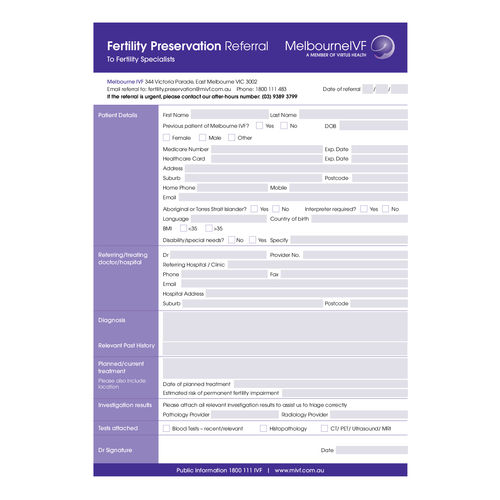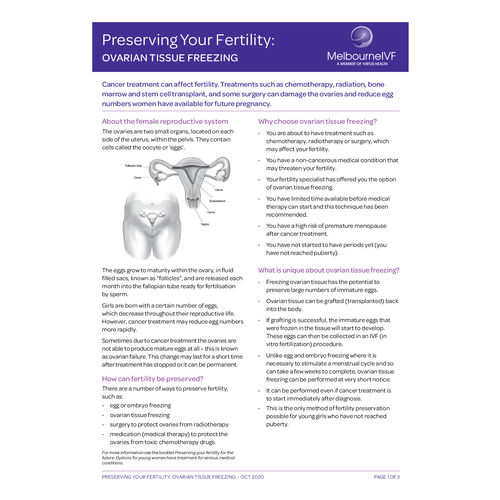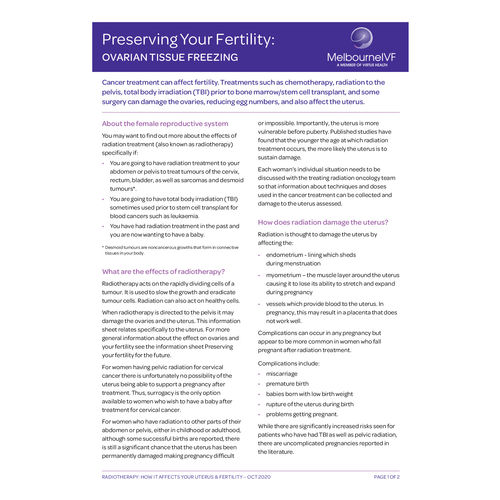
Breaking down the Barriers to Fertility Preservation
Supporting Young People with Cancer to Preserve Fertility
Breaking down the Barriers to Fertility Preservation in the Oncology patient via a National Ovarian and Testicular Tissue Transport and Cryopreservation Service (NOTTCS).
The important role a General Practitioner can play.
Fertility and the opportunity to have a family is an important consideration for young people who have survived cancer, yet many young people with cancer are not able to access fertility-saving options prior to their treatment. A pioneering program at the Royal Women’s Hospital is trying to change that.
Melbourne IVF, together with the Royal Women’s Hospital in Melbourne, provide fertility preservation options including ovarian and testicular tissue freezing, for young people facing the loss of their fertility for medical reasons.
Until recently, young cancer patients seeking fertility preservation in regional or interstate areas, may not be afforded this opportunity because of lack of resources or accessibility. One approach to increasing patient access to Gonadal Tissue Cryopreservation (GTC), is to provide a national tissue retrieval and transport service.
About NOTTCS
NOTTCS facilitates recommended best practice oncofertility, with extensive support from a centre of excellence. This has made possible the expansion of patient and provider access to timely fertility preservation, irrespective of geographic location and (largely) financial constraint.
What can you do to help?
Familiarise yourself with the fertility preservation options, in order to advise your patients of their oncofertility choices if faced with a cancer diagnosis.
And visit The Royal Women's website directly for further information on NOTTCS, or email [email protected].


